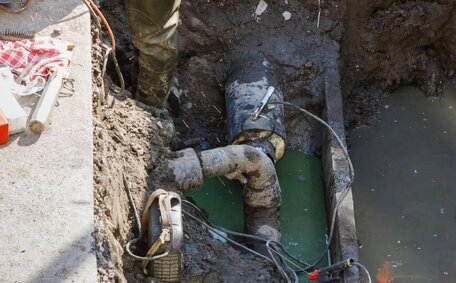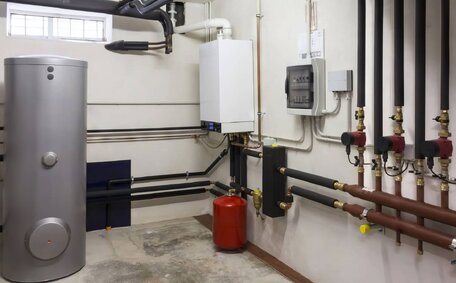
Sump Pump Failure Solutions
Sump pumps fail due to power outages, clogs, frozen pipes, and more. Prevent water damage by understanding causes and contacting plumbers for solutions to extend pump life.
Read MoreHaving your furry friends like dogs and cats can bring so much delight into our homes, yet an unexpected blocked drain can arise from their playful antics, as pet fur finds its way down drain pathways. However, with a bit of know-how, you can easily learn maintenance procedures to prevent blocked drains resulting from pet activities, ensuring a well-functioning plumbing system. Over time, these materials accumulate and can lead to compromised drainage effectiveness, backed-up pipes, foul odours, and potentially distressing overflows.
Shedding fur, litter tracking, and even toy disposal can allow pet hair fur, debris, and other materials to travel their way down the drain paths and into pipes.
It’s essential to combine pet care with preventive measures to maintain an obstruction-free drainage system.
It is highly recommended to consult a professional plumber to safely handle serious plumbing issues.
Dogs, cats, and other small animals are often responsible for blocked drains in the home. Shedding fur and human hair is a key contributor to clogs in the pipes your pets frequent, as strands can easily wash down sinks and tubs, something that can be managed with the right techniques.
Even rinsed-off fish tank gravel and inappropriately disposed of toilet paper can exacerbate the problem, speeding up the accumulation of hair and fur in your drains.
Cats are meticulous groomers but often contend with not just fur, but cat litter stuck on their paws which risks entering drainage systems. Staying vigilant about pet hair prevents major blockages from developing in your household drains.
Shed strands can travel and settle in unexpected places, potentially clogging your shower drain and inviting further plumbing problems. Without prompt attention, regurgitated fur can accumulate in your pipes and block your sink if washed away carelessly during cleaning.
As active and furry family members, your dog is prone to contributing to blocked drains in households.
Beyond fur, dogs’ curious pawing and digging behaviours can also add soil, leaves, sticks, gravel, and other debris into outdoor drains that get washed inside. Improperly cleaned pet bathroom accidents can introduce waste that may cause blockages within your pipes, potentially leading to water overflow.
Moreover, when your aim is to ensure your pet’s well-being, consider sanitary disposal of dog fur after grooming to prevent a clogged drain.
Paying careful attention by regularly taking steps to wash your drains of pet hair, wiping paws before reentry, securely lidding outdoor drains, and addressing bathroom mishaps promptly can greatly alleviate dogs’ impact on drainage systems. It’s equally crucial to unblock your drain issues by teaching dogs appropriate drinking spots away from the toilet bowl!
Using drain catchers in your drain to catch any dog hair and solids, along with adjustable drain covers, enzyme-based drain cleaner solutions, and rubber drain snake tools, can enhance the harmony between your furry friend and your plumbing system. Beyond DIY efforts, consulting professional plumbers who can use the drain auger, high-pressure jetting, or camera inspections allows identifying and addressing lurking dog fur blockages proactively.
With some thoughtful adjustments to look after both four-legged friends and the plumbing in your home, dog owners can aid in preventing unpleasant drain clogging issues.
Cats, similar to dogs, often contribute to issues in your sewer system due to shed fur and litter tracking. Managing cat litter box practices is crucial to prevent materials like kitty litter from entering and accumulating in pipes.
Cats spend ample time self-grooming, and the resulting fur can block drains pipes when it’s later vomited and flushed away by well-meaning owners.
Cat fur tend to stick tenaciously to any damp surfaces like sink and tub drains as they drink from and rub around them. Many cats also playfully track and kick granules of litter stuck between their paws as they exit their litter box.
As those strands catch other materials, they can contribute to clogs that may form further down the pipe. To get rid of these granules, ensure they don’t enter your drain with regular use.
Being diligent about wiping muddy paws before they venture into places where dirt could enter into drain systems, and using mats by litter boxes for excess litter dislodgement can greatly reduce clogs.
Equally important is avoiding flushing cat vomit, wasted litter, or dump outs from cleaning litter boxes down toilet at all costs. Safely dislodging accumulations in pipes can be aided by using even one cup of a home remedy like baking soda alongside enzymatic drain cleaners.
Smaller pets like hamsters, guinea pigs, birds, rabbits, reptiles, and fish can also contribute waste and debris that, when flushed down toilet, clogs household drains over time. Their beddings, gravels, feathers, and fur can make their way into bathroom sinks or down toilets.
Dispose of pet hair and waste properly to shield your home’s sewage system from undue stress.
Proactively wiping down surfaces after handling pets helps prevent unwanted materials from entering your drains. Lastly, installing a sump pump, using drain catchers, and applying enzyme drain cleaners periodically will help dissolve any organic materials from smaller pets that enter the pipes.
Pets can cause drain blockages in several key ways. If neglected, substantial blockages will accumulate over the years, potentially compromising your drainage system’s capability.
As outlined, without a routine to manage shedding, fur, hair, and feathers will inevitably journey further down sink and tub drains, leading to progressive plumbing challenges. Chunks can become trapped in P-traps, acting like a net to ensnare further debris in your plumbing system. Pet waste often contains oils and fats, substances that can cause blockage, so being careful not to send additional oils down the sink is crucial.
Tracking in gravel, dirt, and mud into outdoor drains with pets’ paws is one of the causes of a blocked drain.
Stray granules from cats vaulting out of litter boxes can scatter throughout the home, potentially entering nearby drains.
In terms of waste, while kitty litter is designed to clump into solids, Kitty litter, particularly those varieties containing high sodium bentonite, can solidify and cause build-up in pipes. These materials can result in a sticky accumulation inside pipes that impedes proper flow.
Flushed bits of litter expand and swell, potentially causing blockages as they move through the pipes.
Excessive usage of pet shampoos and conditioners can also create a burden on the water supply, which can cling to inner walls of pipes when going down the drain during indoor pet baths. Sulphate surfactants can cling to pipe interiors, trapping hair and skin flakes, hindering their flow through the hot water drainage system.
Here are some tips for pet owners to prevent blocked drains caused by their furry companions:
Observing your pets around your property’s plumbing and using protective measures can avert the disposal of unsuitable materials in drains, preventing pipe blockages. Addressing issues promptly can prevent drain blockages from becoming major obstructions. For effective resolution of blocked drains, contact your local water management experts for prompt intervention.
DIY efforts can resolve minor drain issues, but more serious clogged drains often necessitate the skill of a blocked drain plumber, especially when problems occur in your septic tank. Some clear signs of a blocked drain that necessitate professional help include backed-up sewer lines, slow-draining fixtures taking more than a minute to clear, bad odours, leaks, bursting pipes, or water pooling around drains. Outdoor drainage challenges, especially those involving community/street pipes, need expert handling to navigate complexities like tree root intrusions.
Trust Cronulla Plumbing, with licenced technicians equipped with advanced tools, to expertly tackle blocked drains. Our expertise also extends to hot water systems, utilising hydro jetting, high-powered augers, and drain cameras for precise blockage removal without damaging pipes. Allow us to make sure we address the problem promptly and discuss preventative steps to avoid recurrence.
For emergency support 24/7, call our office. To do prevent blocked drains from becoming an urgent matter, request non-urgent appointments online using our booking form.
Sump pumps fail due to power outages, clogs, frozen pipes, and more. Prevent water damage by understanding causes and contacting plumbers for solutions to extend pump life.
Read MoreIf your monthly gas bill rises suddenly for no clear reason, the cause could be a gas leak from old pipes or appliances. Contact your provider to investigate.
Read MoreScale buildup reduces the efficiency of hot water systems over time. Regular descaling helps remove this. Flush your system with vinegar or a descaling solution.
Read MoreCronulla, 2230 NSW
We will call back as soon as possible.




